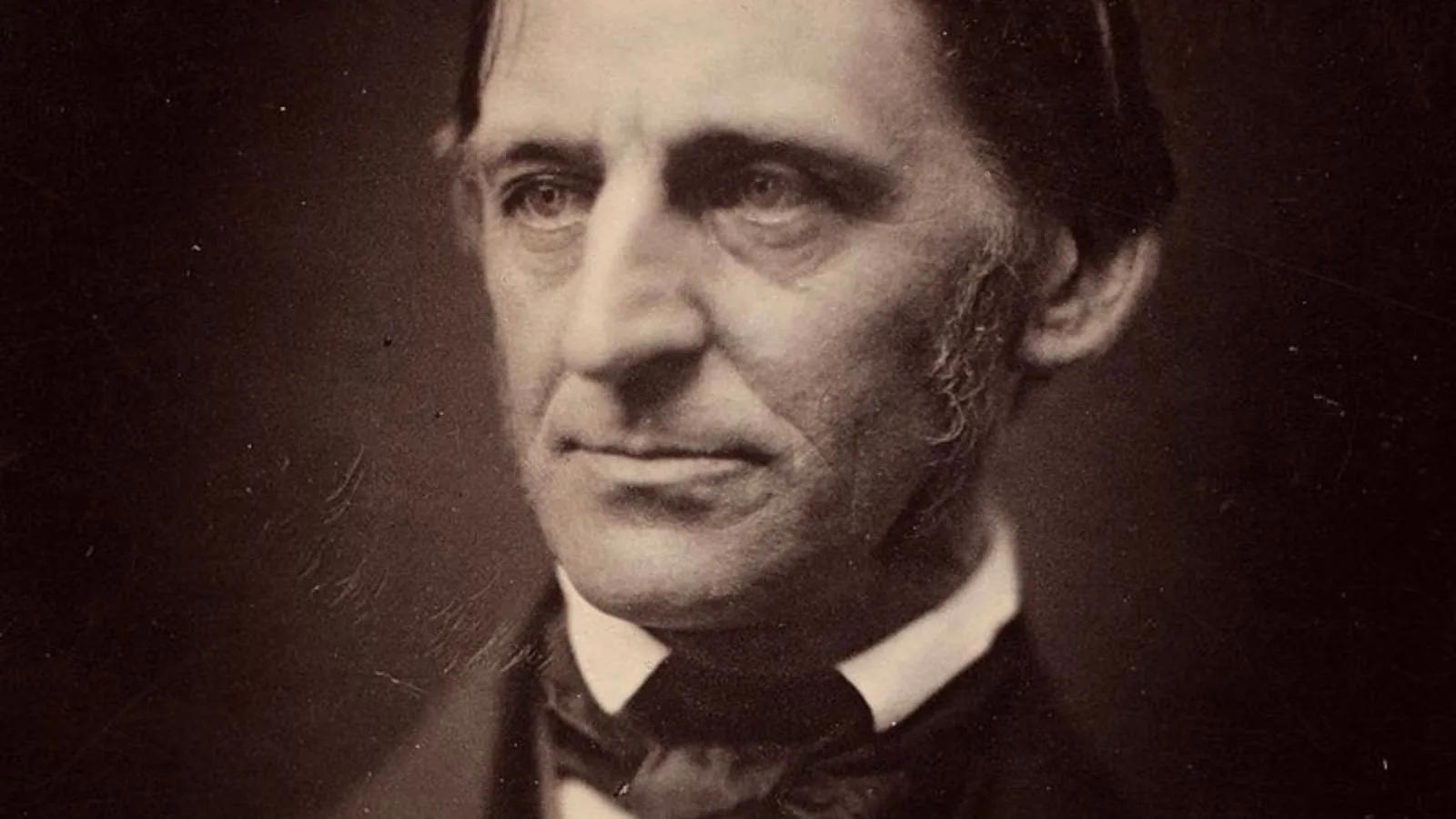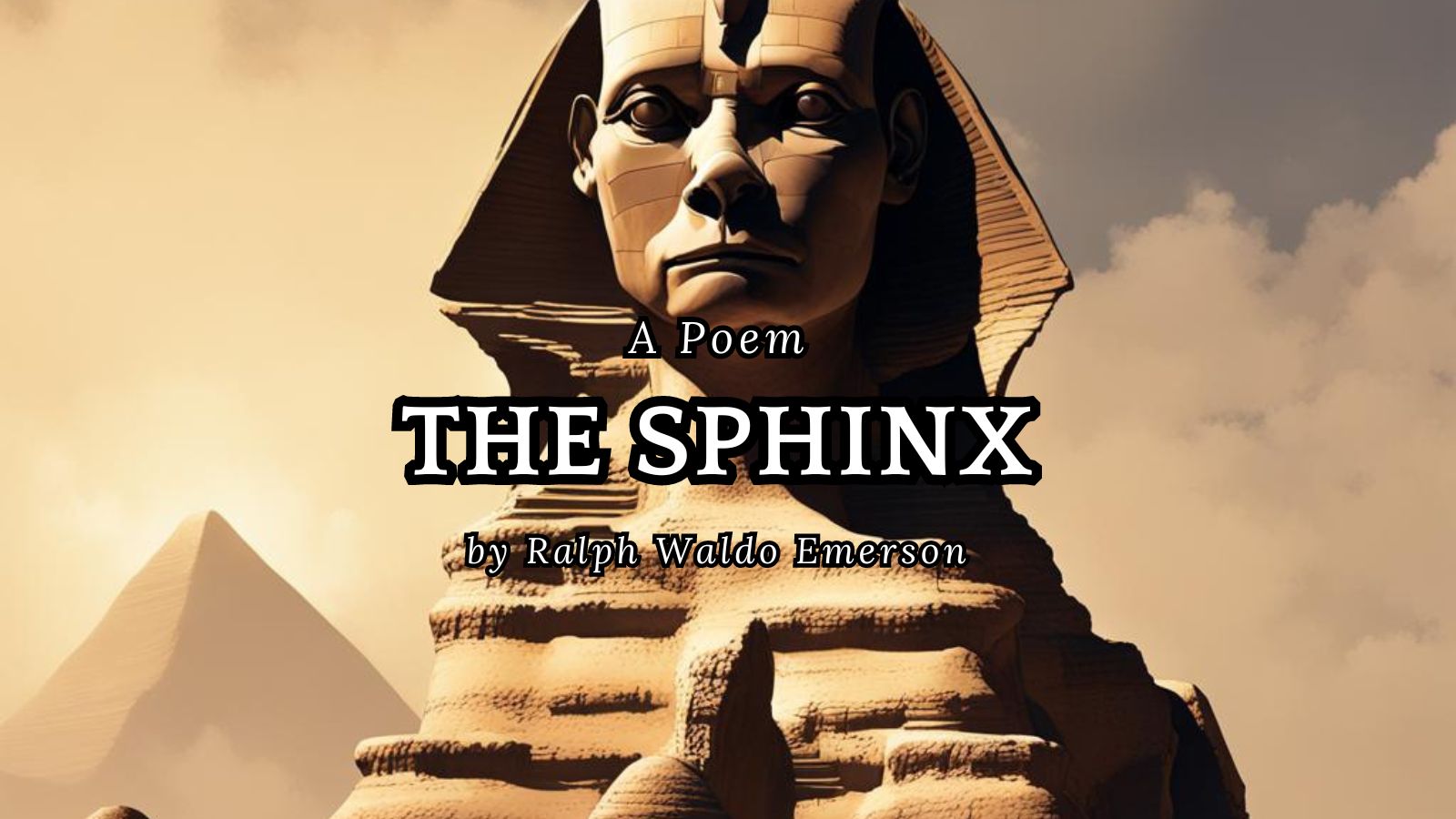The Sphinx, a mythical creature, poses philosophical questions about the mysteries of humanity and the universe that have gone unanswered over the ages. She wonders about the meaning of life, humanity’s purpose, and the secrets of nature
Ralph Waldo Emerson

Ralph Waldo Emerson (1803-1882) was an American essayist, lecturer, philosopher, and poet who led the transcendentalist movement of the mid-19th century. Born in Boston, Massachusetts, Emerson graduated from Harvard University and later became a Unitarian minister, although he eventually left the ministry to pursue a career in writing and public speaking.
Emerson’s work focused on themes of individuality, freedom, and the relationship between the soul and the surrounding world. He believed in the inherent goodness of both people and nature, and he encouraged individuals to rely on their own intuition and inner resources rather than blindly following societal norms or external authority.
Some of Emerson’s most famous works include his essay “Nature” (1836), which outlined his ideas about the divine in the natural world, and his collections “Essays: First Series” (1841) and “Essays: Second Series” (1844), which contained well-known pieces such as “Self-Reliance” and “The Over-Soul.” He also delivered a number of notable lectures, including “The American Scholar” (1837) and “The Divinity School Address” (1838).
Emerson’s ideas influenced many other writers and thinkers, including Henry David Thoreau, who was a close friend and protégé. Emerson was also a key figure in the development of American literature and played a significant role in shaping the country’s intellectual and cultural identity.
Throughout his life, Emerson maintained a strong belief in the importance of individual experience, the power of nature, and the potential for human progress. His work continues to be widely read and admired today, both in the United States and around the world.
Each and All By Ralph Waldo Emerson
Each and All ?By Ralph Waldo Emerson Little thinks, in the field, yon red-cloaked clown Of thee from the hill-top looking down; The heifer that lows in the upland farm, Far-heard, lows not thine ear to charm; The sexton, tolling his bell at noon, Deems not that great Napoleon Stops his horse, and lists with…
THE PROBLEM by Ralph Waldo Emerson
? THE PROBLEM by Ralph Waldo Emerson I like a church; I like a cowl; I love a prophet of the soul; And on my heart monastic aisles Fall like sweet strains, or pensive smiles Yet not for all his faith can see Would I that cowl?d churchman be. Why should the vest on him…
The Concord Hymn by Ralph Waldo Emerson
Ralph Waldo Emerson??( 1803 ? 1882) The Concord Hymn Ralph Waldo Emerson (1837) By the rude bridge that arched the flood, ???? Their flag to April’s breeze unfurled; Here once the embattled farmers stood; ???? And fired the shot heard round the world. The foe long since in silence slept; ???? Alike the conqueror silent…
The World-Soul by Ralph Waldo Emerson
The World-Soul by Ralph Waldo Emerson Thanks to the morning light, Thanks to the foaming sea, To the uplands of New Hampshire, To the green-haired forest free; Thanks to each man of courage, To the maids of holy mind, To the boy with his games undaunted Who never looks behind. Cities of proud hotels, Houses…
GOOD-BYE–Ralph Waldo Emerson
Ralph Waldo Emerson was born in 1803 and died in 1882. He was a American poet who lead the Transcendentalist movement.
